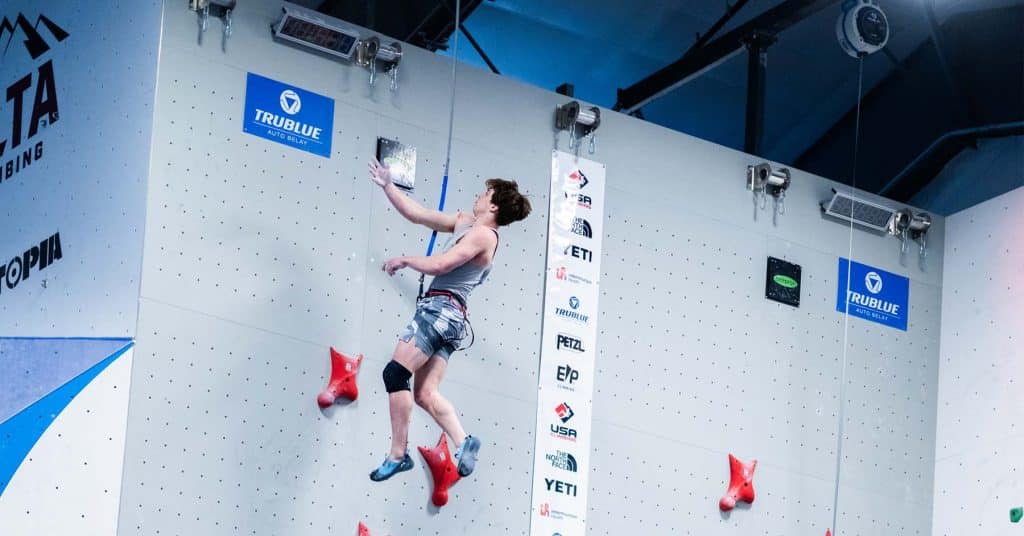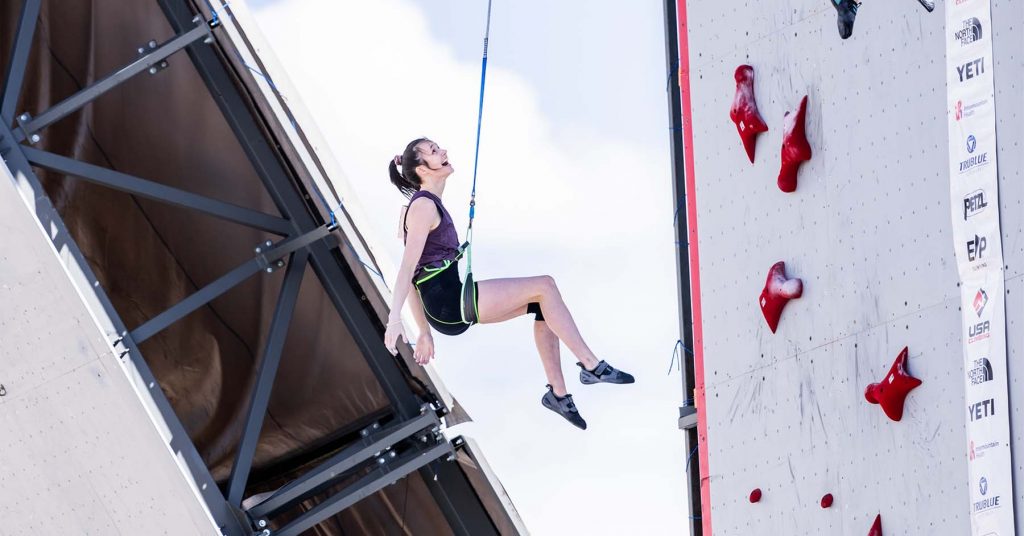It's very easy to learn how to use an auto belay. The proper use of an auto belay is simple and straightforward. As with everything in climbing, it is important to avoid learning bad habits and build the right ones from the start. Most auto belay accidents occur due to human error when an experienced climber becomes complacent and forgets to clip in. Obviously, an auto belay won't work if you're not attached to it.
The best way to avoid complacency when climbing is to focus on the process rather than the outcome. Establish a routine that includes all the proper safety checks. Do not go straight to the end goal without double-checking everything simply because you're confident that you did it right because you've done it a million times before. You have a routine safety check when you're using an auto belay just like you have an established routine for your safety check with your belay partner.
If you've never used an auto belay before, you should alert the climbing wall staff that you have not been trained in the proper use of an auto belay. They will instruct you in how to safely use the auto belay device in their specific setup. The video and step-by-step instructions on this page are created for the TRUBLUE Auto Belay.
How to Prepare For Your Auto Belay Climb
1. Check your harness
- Check the climbing harness is correctly fitted and tightened
- If your harness has a standard buckle, remember to double it back
- Different types of harnesses require different safety checks. This is not a complete guide to checking your harness. You are responsible for being familiar with your harness and how it should be worn.
2. Check Auto Belay operation by pulling out a short section and allowing it to retract
- If the Auto Belay line fails to retract, do not clip into the Auto Belay and request assistance
3. Open the triple action, auto-locking carabiner
- The carabiner is opened by sliding the gate down, rotating the gate's collar and pushing the gate open towards the center of the carabiner. Be careful to not let go of the carabiner or else the entire webbing will retract into the device.
4. Connect the carabiner to the belay loop on the harness with the gate facing away from the user
- As previously mentioned all harnesses are different. For most harnesses, the correct connection point is the belay loop. Do not clip the carabiner into multiple hard points. This will cause tri-axle loading. The carabiner is designed to work best when force is exerted on it in two directions. If three directions of force are exerted on the carabiner it will increase the risk that the carabiner will fail.
5. Check that the carabiner is properly locked
- Allow the latch to snap shut, ensuring the collar has rotated back and is locked. Ensure that no clothing, webbing or other objects are obstructing the gate or latch.
6. Ensure the carabiner is only loaded along its vertical direction
7. Double check your carabiner is attached to the proper point on your harness
8. Double check that the carabiner is locked
Tips for Proper Operation While Climbing
- Never climb alongside or above the Auto Belay.
- Do not climb faster than the auto belay is able to retract.
- If you require faster retraction speeds, you should consider using the TRUBLUE Speed Auto Belay.
- Do not climb outside the belay zone.
- Most climbing gyms will mark the auto belay boundaries. Do not climb a route outside the auto belay boundary.
- A typical belay lane is shown in the picture below.

Proper Operation While Descending
- Do not start your descent from above the auto belay
- Prior to descent, make sure that your descent path is clear from obstacles and other climbers
- Always descend feet first, using feet to fend off obstacles and prepare for landing.
- Reattach the carabiner to the belay gate or designated attachment point
How to Become an Auto Belay Pro
Now that you're familiar with the basic operation of an auto belay you can take the next step toward becoming an auto belay master. The TRUBLUE Auto Belay is a great training tool for building endurance and providing a backup for learning new skills. Make sure that you're comfortable with the basic operation of an auto belay before moving on to more advanced skills and drills. This video has expert advice about using an auto belay to build rock climbing endurance. This next video will teach you how to lead climb while using an auto belay as a backup. Now you're well on your way to being an auto belay pro. Climb hard, and stay safe!



